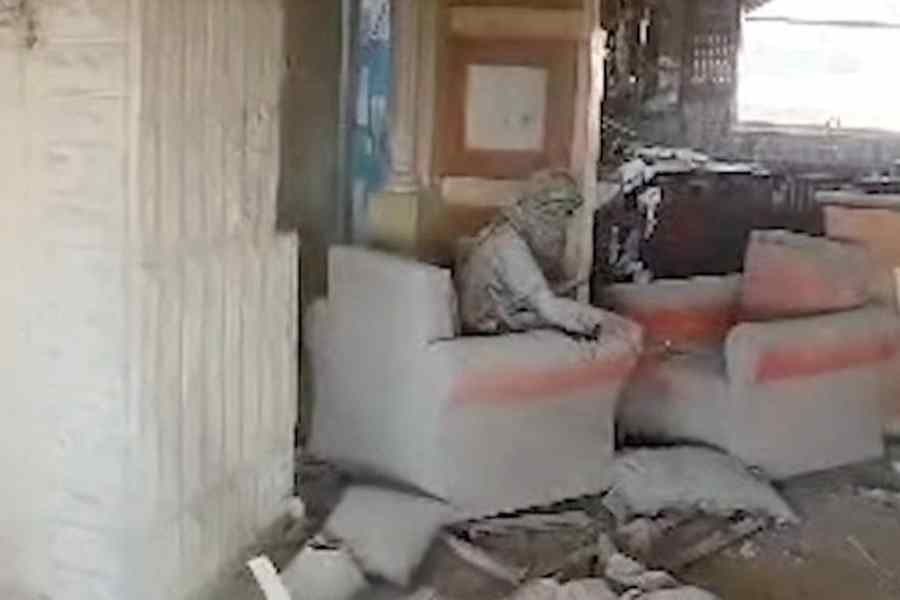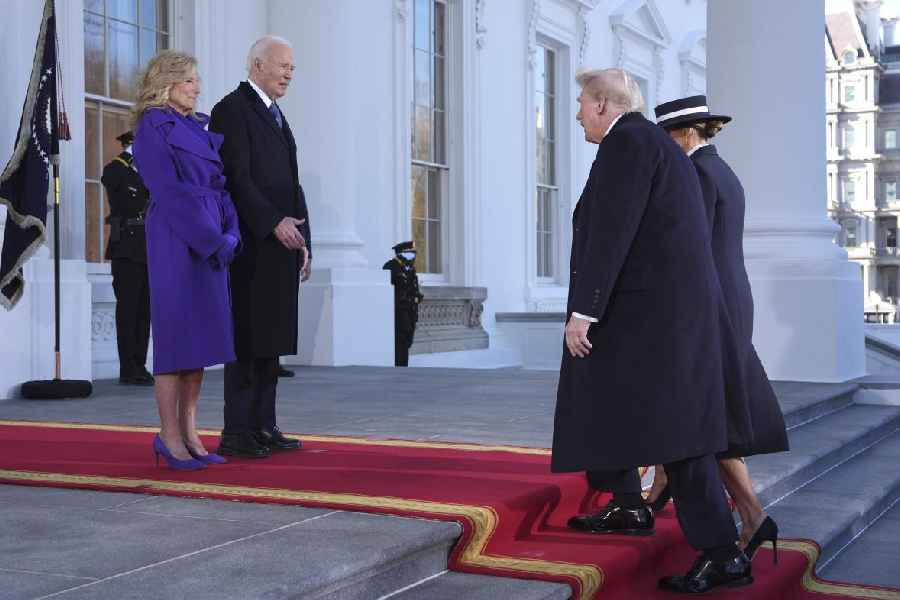It was a routine patrol for a unit of Israeli soldiers in the southern Gaza Strip. Then a firefight erupted and the Israelis, backed by drones, destroyed part of a building where several militants had taken cover, Israeli officials said.
When the dust cleared and they began searching the building, the soldiers found a body that bore a striking resemblance to someone they had not expected to find, a man their country had been hunting for since October 7, 2023: Yahya Sinwar, the leader of Hamas.
For more than a year, as tens of thousands of Gazans were killed, Sinwar had eluded the full force of Israel’s military and security establishment, which had dedicated every means at its disposal to finding and killing him.
Many believed Sinwar was hiding underground in Gaza and had surrounded himself with hostages taken from Israel.
In the end, the Israeli officials said, he was killed above ground on Wednesday, alongside two other militants, with no sign of hostages nearby. The Israeli authorities said they had confirmed his death on Thursday, using dental records and fingerprints. His DNA was also tested for confirmation, according to one Israeli official and the White House.
Sinwar’s death was the most severe blow to Hamas’s leadership after more than a year of escalating violence in West Asia, and it immediately plunged the war in Gaza into a new and uncertain phase. It came less than three weeks after Israeli forces killed the leader of Hezbollah, Hassan Nasrallah, in an airstrike south of Beirut, the Lebanese capital.
While some hoped Sinwar’s death might signal an end to the Israeli invasion, Prime Minister Benjamin Netanyahu indicated that the offensive would not stop just because the engineer of last year’s deadly surprise attack on southern Israel had been killed.
“Today, evil took a heavy blow — the mission ahead of us is still unfinished,” Netanyahu said in a statement. He said that Israel remained determined to free the hostages still in Gaza, calling it an “obligation”. He told Gazans that whoever “sets aside their weapons and returns our hostages — we will allow them to leave and live”. But he warned that anyone who harmed Israeli hostages would pay with their lives.
In Gaza, the soldiers who unexpectedly encountered Sinwar on Wednesday were part of a unit training to be squad commanders. After the firefight killed Sinwar and two other fighters, the Israelis found the area littered with explosives and approached the bodies cautiously. They found money and weapons, according to one Israeli official.
Photographs obtained by The New York Times, some of which later circulated online, show the body of a man with facial features strongly resembling Sinwar’s. The body had severe wounds, including to the head and leg.
Sinwar died after Israeli soldiers and intelligence agents had spent months trying to locate him, finding clues but never managing to trap him, an Israeli military spokesman, Rear Adm. Daniel Hagari, told reporters. Sinwar’s DNA had been found at one point in a tunnel a few hundred metres from where the bodies of six Israeli hostages were found six weeks ago, Admiral Hagari said. Israel collected DNA information from Sinwar during his decades-long incarceration inside Israeli jails.
The news that Sinwar had been killed led to celebrations in Israel, as people gathered on rooftops and streets to cheer and wave Israeli flags, and drivers honked their horns.
For some of the hostages’ families, it was a moment of both satisfaction and trepidation. Many worried that their relatives might now be in greater danger. Einav Zangauker, whose son, Matan Zangauker, was kidnapped from Kibbutz Nir Oz, made a direct plea to Netanyahu in a video on social media: “Don’t bury the hostages.”
“You have your victory image,” she said. “Now bring a deal.”
Orna and Ronen Neutra, the parents of Omer Neutra, a hostage who grew up on Long Island, New York, and later joined the Israeli military, urged that “all attention” should turn to securing the release of the captives.
As word of Sinwar’s death travelled through Gaza, many were stunned. At a makeshift cafe on the side of a road in Khan Younis, where Sinwar was born in 1962, people stopped to watch the news on television. Another resident of the southern city, Rayan Raef Hamdan, 20, said she would wait until Hamas confirmed the news and was hoping it was false, like previous reports of his demise.
“Since the beginning of the war, we have heard many of these rumours,” she said, adding: “We hope that God will prolong his life and save him from death.”
Other Gazans welcomed Sinwar’s death, blaming him for the hunger, unemployment and homelessness the conflict had caused.
“He humiliated us, started the war, scattered us and made us displaced, without water, food or money,” said a 22-year-old named Mohammed, who has been repeatedly displaced and asked that his last name not be used for fear of reprisals from Hamas.
“He is the one who made Israel do this,” Mohammed said, calling Sinwar’s death “the best day of my life”.
Some said little would change with Sinwar’s death. “Many preceded him,” said Rehab Ibrahim Odeh, 64. “And he is no better than those who have passed away before.”
Iranian state news media portrayed Sinwar’s death as “martyrdom” and praised him for dying while fighting Israel on the battlefield in Gaza.
US President Joe Biden told reporters in Berlin that he had congratulated Netanyahu and would send the secretary of state, Antony J. Blinken, to Israel in the next four or five days. “Now is the time to move on,” Biden said, calling for a cease-fire in Gaza.
“It’s time for this war to end and bring these hostages home,” he said. Netanyahu’s office said that he had spoken to Biden and had “agreed that there is an opportunity to advance a deal to free the hostages and they will work together to achieve that goal”.











